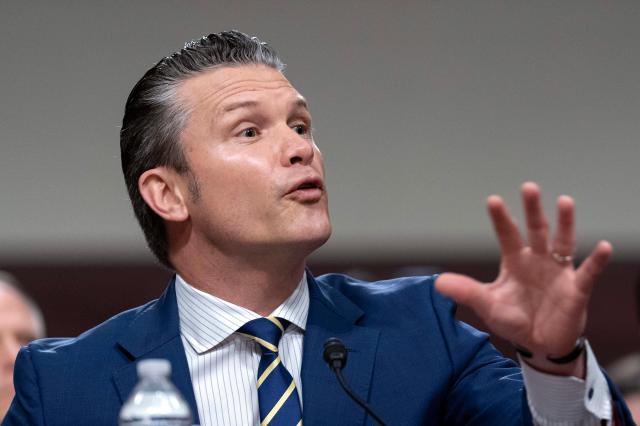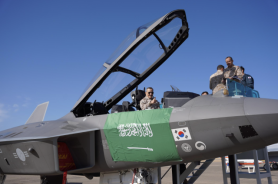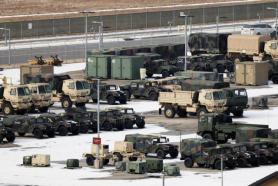
Pentagon spokesperson Sean Parnell also said Thursday that its European allies are setting a "global standard" for alliances, which is to spend 5 percent of their gross domestic product (GDP) on defense, and that should apply to Asia as well.
Parnell further elaborated that it is "reasonable" for countries in the Asia Pacific to increase their defense budgets, given China's military buildup and North Korea's development of nuclear weapons and other missiles.
These remarks came just weeks after the Pentagon chief said at NATO headquarters in Brussels early this month that NATO allies are close to reaching an agreement to raise defense spending over the next decade, adding, "Countries there are well exceeding 2 percent and we think very close, almost near consensus, on a 5-percent commitment to NATO."
But the Defense Ministry here argued Friday that South Korea has already spent a significant amount compared with other key U.S. allies. "South Korea is among the countries with a high defense spending ratio in proportion to its GDP," the ministry said in a statement.
South Korea spent about 66 trillion won (US$47.8 billion) on defense last year, accounting for about 2.8 percent of its GDP. Meeting the 5-percent level would require increasing the budget to over 118 trillion won (US$85.5 billion).
Besides, Seoul and Washington, after multiple rounds of talks last year, already reached an agreement on an 8.3 percent hike for the upkeep of maintaining some 28,500 U.S. troops here, with Seoul shouldering 1.52 trillion won (US$1.14 billion). The agreement will be effective from 2026 through 2030, with annual adjustments based on consumer price inflation.
But these issues are likely to be put on the agenda at the upcoming NATO summit scheduled for early next week in the Hague, the Netherlands, raising concerns about a possible significant hike in South Korea's defense burden.
President Lee Jae-myung has not yet decided whether to attend the summit, but if he does, he could sit down for talks with U.S. President Donald Trump. Their first planned bilateral meeting fell through last week at the Group of Seven (G7) summit in Canada due to Trump's early return to Washington amid a deadly conflict in the Middle East.
Copyright ⓒ Aju Press All rights reserved.




